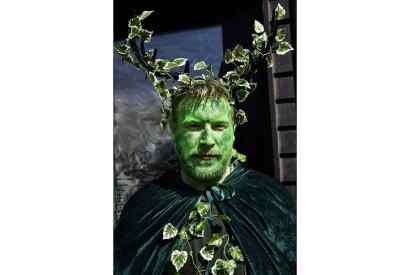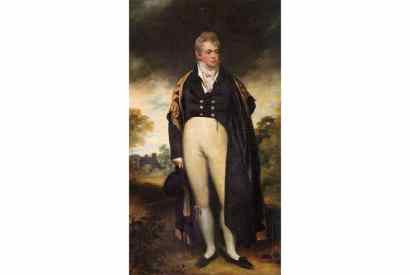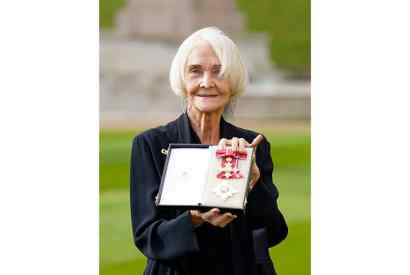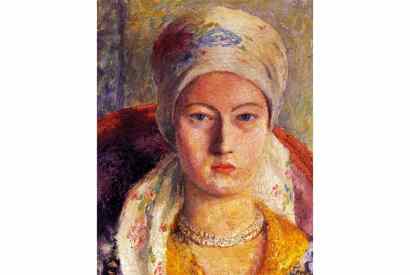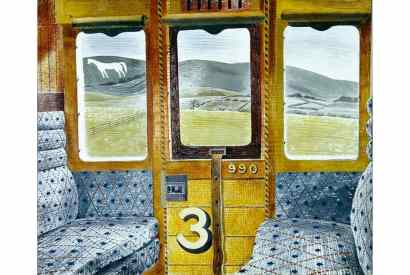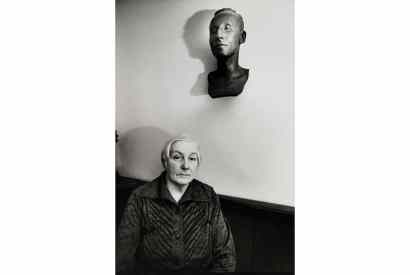More from Books
An immorality tale: Lapvona, by Ottessa Moshfegh, reviewed
Has there been a better novel this century than Ottessa Moshfegh’s My Year of Rest and Relaxation? There might not…
We let Hong Kong down: Chris Patten on the end of colonial rule
After 13 years in parliament, rising star Chris Patten had the bad luck to be one of the few Tory…
Connecticut connections: A Little Hope, by Ethan Joella, reviewed
A Little Hope, Ethan Joella’s debut novel, is about the lives of a dozen or so ordinary people who live…
Berliners were punished twice – by Hitler and by the Allies
‘Nationalism is an infantile disease. It is the measles of mankind.’ Albert Einstein’s deft avoidance of the question put to…
What shape is the Treasury in now?
Don’t bring a bottle. Your chances of finding a party in full swing down those chilly corridors are close to…
The Victorian origins of ‘medieval’ folklore
I would guess that contemporary pagans have a love-hate relationship with Ronald Hutton. With books such as The Triumph of…
Abolishing slavery was no cause for smugness
When the 13 colonies of the United States declared independence in 1776, the first country to recognise the new nation…
Jarvis Cocker measures out his life in attic junk
If you were hoping for an autobiography this isn’t it. Jarvis Cocker calls it ‘an inventory’ and insists: ‘This is…
The deep roots of global inequality
Thomas Piketty, the French economist who shot to fame for writing a colossal work of economics that many people bought…
Sheila Hancock takes pride in her irascibility
This book begins with Sheila Hancock wondering why she is being offered a damehood. I must say I slightly wondered…
Bisexuality was the Bloomsbury norm
It’s been a century since the heyday of the Bloomsbury group, and now Nino Strachey, a descendant of one of…
From teenage delinquent to man of letters: James Campbell’s remarkable career
The great age of the Scottish autodidact must have ended a century ago, but it had a prodigious impact while…
What do Beethoven, D.H. Lawrence and George Best have in common?
This is not a book about tennis. Roger Federer appears early on, trailed by the obligatory question ‘When will he…
Alive with innovation: British art between the world wars
When I mentioned the subject of this book to someone reasonably well-informed about 20th-century British art, the response was: ‘Isn’t…
The catastrophe that allowed mammals to reign supreme
Humans are so comfortable with their self-declared dominance over the rest of life, appointing themselves titular head of an entire…
A twist on the American classic: The Sidekick, by Benjamin Markovits, reviewed
On the cover of The Sidekick, just below a broken basketball hoop, a quote from Jonathan Lethem suggests Benjamin Markovits…
‘It was all a fairy tale’: Lina Heydrich’s description of the Holocaust
There have been many biographies of Reinhard Heydrich, the cold, cynical head of the SS in the Third Reich, but…
After Aberfan, clairvoyants had a field day
In the wake of catastrophe, however random or unpredictable, one of the first things people can be relied upon to…
Too close to home: Nonfiction, by Julie Myerson, reviewed
Julie Myerson has, somewhat confusingly, written a novel called Nonfiction. The confusion of course is the point, because this is…
Musings on harmony, melody and rhythm
Every Good Boy Does Fine – a banal phrase that also just happens to be the key to limitless wonder.…
A flawed utopia: The Men, by Sandra Newman, reviewed
The problem for feminism is men. Not, specifically, in the sense that men are the source of women’s problems, although…
Where does brave, stubborn Hungary stand today?
‘Deplorable,’ wrote the historian Denis Sinor in 1958 about the state of Hungarian historiography in English. ‘Not only are the…
A child’s eye view: Fight Night, by Miriam Toews, reviewed
Writing from a child’s point of view is a daredevil act that Miriam Toews raises the stakes on in her…







